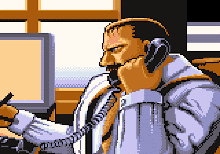I’m interested in locating the intersection of political, economic and cultural forces that drive social phenomena, investigating in particular how these forces are shaped by, and shape, space. In the tradition of my intellectual forebears, these sort of investigations involve a lot of critique. Critique and critical reflection often seem negative – this is wrong, that must be changed, and so on – but, in the grand tradition of Enlightenment thought (which, ironically, I am often critical of), critique is designed to be either transcendent of its subject or to elucidate possible transformations of its subjects in order to improve the subject’s condition. For the sake of example, if we critique a certain local government’s policy, the whole objective of pointing out its flaws is to sketch out ways that the local government’s policy could be improved. It’s no coincidence that the subtitle of Marx’s Capital is A Critique of Political Economy: Marx pointed out the failings, inconsistencies and contradictions of capital in order to create the groundwork for a more just and stable mode of social organization. Capital was meant to be ten volume set, with volumes towards the end of the set to be dedicated to finding the light at the end of the tunnel, so to speak. Unfortunately for us all, Marx only really completed the first volume of Capital (volumes two and three were drafts edited and completed by Engels), and so we have been left to pick up the pieces from where the master left off, and figure out what a better, post-capitalist world might actually look like, and how it might function.

Adorno: good at figuring out what is wrong with art, popular culture and the relationship between people and capital, bad at seeing anything positive in anything, ever.
Our search begins with critique. We critique the undialectical straightjacket of modern science and its cloak of pseudo-objectivity, yet an alternative to the contemporary scientific method remains elusive. We critique the structural mechanics of capital, especially in its neoliberalized, free-market form, but alternative modes of economic organization lack the clarity and simplicity of capital exchange and monetary valuation, which David Harvey correctly points out are perhaps the only universally understood measuring stick for value. Critiques of the unjust and exploitative power relations that shape the world economy are as convincing and affecting as ever (in particular see Mike Davis’ Planet of Slums), and yet these power relations remain obdurate, for the simple reason that the world economy requires immiseration and poverty in order to discipline labour and establish fertile conditions for competitive locational advantage and Schumpeterian “creative destruction”. In sum: Marxian critiques of cultural, political and economic formations are often accurate in pointing out their failings, but what often seems missing is the transcendent end of critique, with a vision of a better world in mind.
David Harvey wrote in Spaces of Hope something to the effect of “a ship that knows not where it sails can make no use of the wind”. I am a firm believer in this. What is the point of criticality if it isn’t driving us towards a better world? What is a better world – more personal gratification? Economic stability? Social justice? In effect, what is point of understanding all the failings of capital if there is no understanding of love, death, sex, religion, family, or communication? As the elder Marcuse succinctly put it, “not every problem someone has with his girlfriend is necessarily due to the capitalist mode of production”.
And so we come to beauty. I won’t take this time to try and figure out what it is, or how my conception of beauty is shaped (Pierre Bourdieu, you and I can have that conversation another time), but I am slowly coming to the realization that I need to take more time to appreciate it. There are significant hardships awaiting us if we don’t significantly change the architecture of our collective politico-economic sphere, but these changes are meaningless unless I/you/we understand what we are changing for. This is a deeply philosophical quandary, and not one that I can answer at the moment with any sense of depth or profundity, but I do know this: I am taking some time, possibly the rest of this summer, to try and understand how my ideals of beauty are formed, and experience this beauty in the fullest. This will probably involve making a lot of mistakes and doing things that I know on a rational level to be kind of foolish, but, you know, sometimes even I have to give myself a break.
Last night I attended a fundraiser for Comrad Sound, a small local arts/community development centre in danger of closing. The fundraiser was packed full of energetic, intelligent, enthusiastic people of a variety of demographics. It was beautiful.
Other beauties: David Cross – Bigger and Blackerer, Wolf Parade – Expo 86, Angels of Light – Everything is Good Here/Please Come Home and split with Akron/Family, Washed Out – Life of Leisure, Karl Polanyi – The Great Transformation: The Political and Economic Origins of Our Time, Tom Waits – Bone Machine, Bad Lieutenant: Port of Call New Orleans, Kurt Vonnegut – Armageddon in Retrospect, Earth – Hex; Or, Printing in the Infernal Method, activism


Hmm.
ReplyDeleteHow the socio-political-economic environment affects space, eh?
I think space has its own agenda. Its the ultimate objective force, given its uncognative nature. Its symbiosis with gravity, time, mass and other factors beyond my understanding place great subtle weight upon our being.
To square up to the magnificence of space we have seem to subconsciously agonise over a need to define ourselves as a force; to determine our own effects on the universe around us.
Sometimes I think we are like a baby putting its fingers in its mouth for the first time.
Sometimes I think I shoulda studied dinosaurs. They're reliable.
ReplyDelete